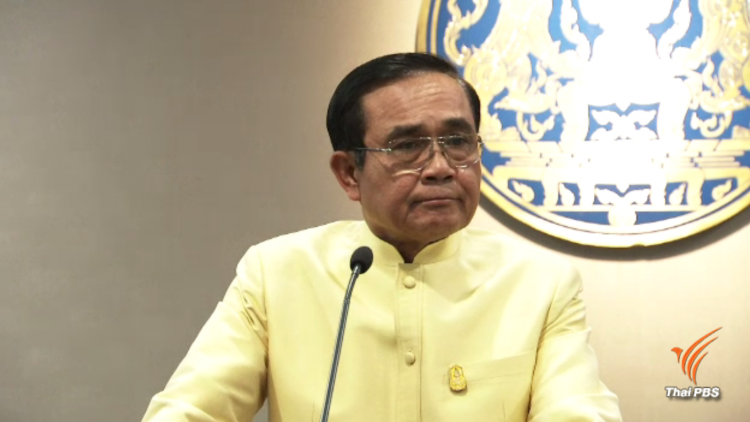Thai PM claims he is neither a dictator nor blind to the views of detractors

Prime Minister Prayut Chan-o-cha has refuted allegations that he is a dictator, who aspires remain in power for up to 20 years to implement the 20-year national strategy, or that he is blind to the views of his detractors.
Instead, he said he is ready to listen, to make improvements, adding that he cannot please everyone “because, if there is a mistake, who will be held accountable on my behalf.”
During his special address at the University of the Thai Chamber of Commerce today (Sunday), he referred to the 20-year national strategy, which has been described as an excuse for him to stay in power for the next 20 years, saying that he does not know what is his future will be when he wakes up or whether he will live or die in the next 24 hours.
The prime minister also said, in order to protect Thailand’s interests and security in the international community, he has to think beyond Thai borders and interact with other countries, especially the super powers.
He cited his government’s decision to access the Comprehensive and Progressive Agreement for Trans-Pacific Partnership (CPTTP) free trade agreement, but with several reservations for future negotiations, with a full awareness of the positives and negatives of the agreement.
The CPTTP is a free trade agreement between Australia, Brunei, Canada, Chile, Japan, Malaysia, Mexico, New Zealand, Peru, Singapore and Vietnam.
Referring to the various problems besetting the country, ranging from poverty, flooding and household debt to social inequality, injustice and national competitiveness, he pleaded for cooperation and understanding from all stakeholders, saying that, without their support, solving the problems will be difficult.
Commenting on the various tax payer funded economic stimulus schemes, such as “Rao Chana” (We Win) and 50:50 co-payment, which the Thai Chamber of Commerce has proposed that the government extends, the prime minister explained that the government has already done its best to help people get through economic hardships induced by the COVID-19 pandemic.
He noted, however, that spending on these schemes must be appropriate and reasonable, otherwise people will become accustomed to handouts, which may lead to more formal and informal household borrowing.
Regarding financial support for small and medium sized enterprises, in the form of low-interest loans as requested by the private sector, the prime minister said, if he were a banker, he would grant low interest loans to them.
Since, however, he is not a banker and does not own a bank, he said he could not force the banks to do as he wishes and urged understanding of his shortcomings.






